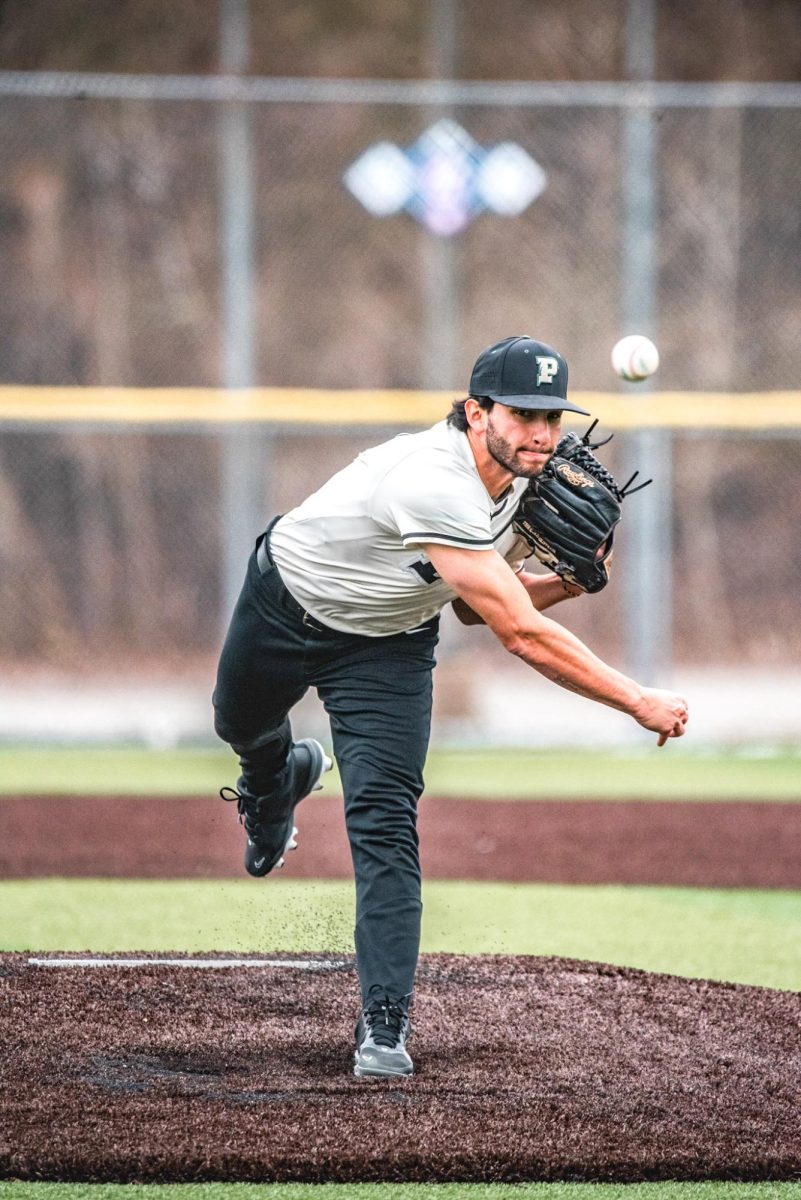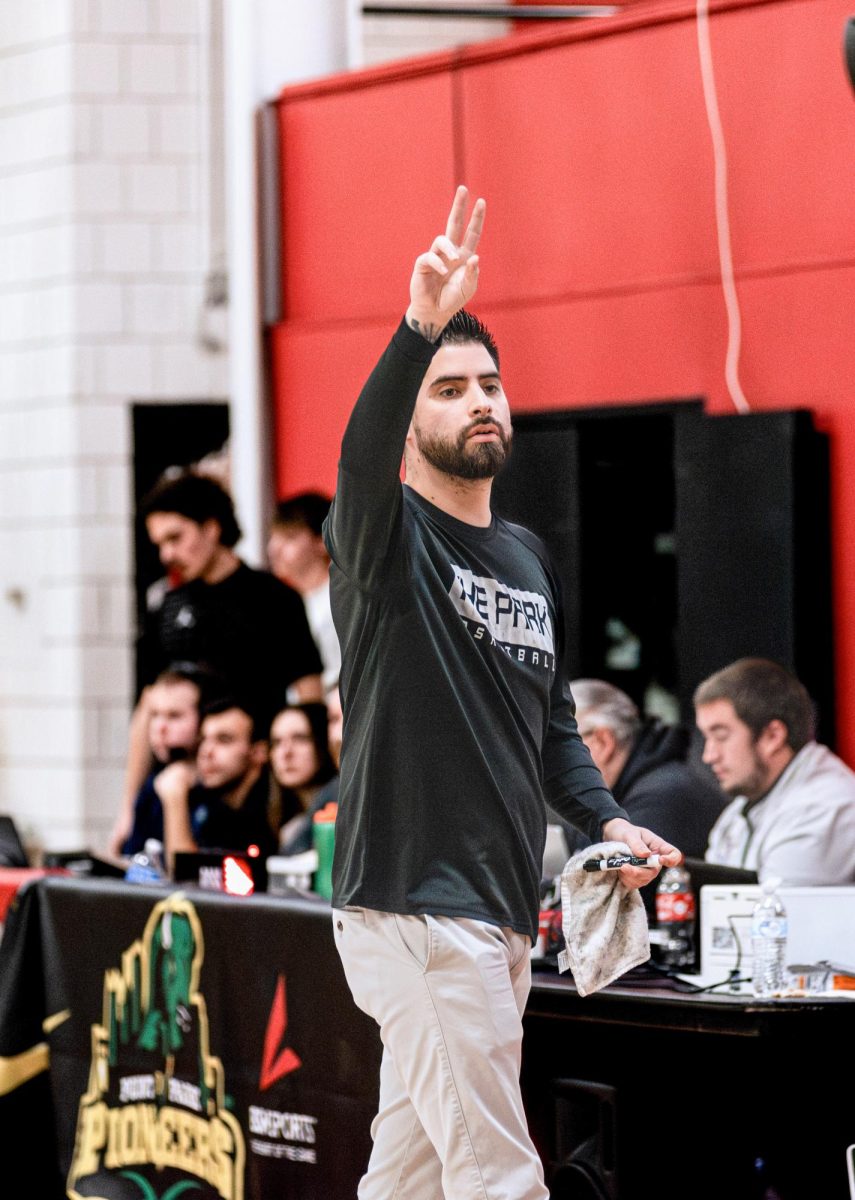During the afternoon of Sunday Aug. 27, in a 1-1 game between the Pittsburgh Pirates and the Chicago Cubs, it seemed that Pirates left-handed pitcher Bailey Falter would be cruising his way towards a quality start. But with one out in the fourth inning, a 3-2 fastball on the inside corner was taken by Cubs’ right fielder Seiya Suzuki. According to the automated strike zone, Falter painted the pitch perfectly at Suzuki’s knees on the lower right corner of home plate, for what should have been strike-three and the second out of the inning. Instead, home plate umpire Jacob Metz called ball four, which awarded Suzuki first base.
Two batters later, Cubs’ third baseman Jeimer Candelario hit a two-out, two-run home run to give the Cubs a 3-1 lead. Falter should’ve been out of the inning with the game still tied. But instead, that home run caused him to lose his flow – and he eventually exited in the fifth inning after giving up six earned runs. The Pirates ended up losing 10-1.
What’s my point? The missed call by Metz set in motion a series of events that changed the course of the game. Blown calls behind home plate have been affecting the outcomes of a lot of Major League Baseball (MLB) games this year. There has never been a more pathetic display of bad umpiring as there has been during the 2023 season. Quite frankly, it’s an embarrassment to the sport.
For instance, take a look at these 2023 umpiring statistics according to “Umpire Auditor” on X, formerly known as Twitter:
- In the month of July, there were 215 strike-three calls that should’ve been called balls.
- During the week of Aug. 6-12, there were 1,028 missed calls, and during the following two weeks, there were 1,032 and 940 missed calls, respectively. On average, that’s 1,000 missed calls a week.
- As of Aug. 28, there have been 44 times this season where a home run was hit after a batter should have been called out on strikes from a previous pitch in the same at-bat.
The most likely reason for this dramatic increase in blown calls is the fact that 10 experienced umpires retired after the 2022 season, including seven crew chiefs. That was the biggest retiring class since 1999, when 22 umpires left the league after failed contract negotiations. So when new and inexperienced umpires are added among the likes of Angel Hernandez, C.B. Bucknor and Laz Díaz, it’s not a recipe for success.
In a world where technology continues to advance the game of baseball for the better with instant replay review, PitchCom, and the newest edition of the pitch clock, there is no reason why the automated ball-strike (ABS) system can’t be implemented immediately. According to Bob Nightengale of USA Today, there are plans to have the system used at the major league level, but MLB will most likely wait until 2025 to add it to the Collective Bargaining Agreement (CBA) to make sure that it works correctly.
However, considering the amount of success the ABS has already had in many minor league levels, how can implementing the system a year earlier be worse than what the league is dealing with right now? Home plate umpires have hit a new low this year, and another painful season of consistently bad calls is not something anyone wants to see.
Over the last two seasons across minor league baseball, the ABS system has been used effectively in two different ways. There has been a “full” system, where the umpire is told the call in an earpiece strictly based on the automated strike zone. Then there is the “challenge” system, which has been preferred by most players and coaches. In this system, the home plate umpire still makes calls on their own judgment, but if at any point a pitcher or batter disagrees with a call, they can challenge it. The ABS system then decides whether a called strike or ball should be overturned. The “challenge” system still gives home plate umpires a job, but also creates less human error while adding a competitive element to the game. It will most likely be this method used in MLB, and it’s only a matter of time until it is applied.
Hopefully it will be as soon as 2024 rather than later like 2025, as all baseball fans are frustrated with the inconsistencies of umpires that are affecting the outcomes of games. Not to mention the massive pride and ego of some umpires that have led to the constant ejections of players and coaches.
For example, in a game on Aug. 13 between the Pirates and the Cincinnati Reds, umpire Nic Lentz ejected not one, not two, but three Pirates coaches within a minute. He heard one or two smug comments – one of them definitely not coming from a coach – and wound up blindly tossing two coaches because he had a short fuse. Then manager Derek Shelton came out of the dugout and argued, and of course he was thrown out of the game as well.
Officials in all other sports allow for some leeway and don’t usually act this irrationally, but for whatever reason the standard in baseball is different. Umpires have always had the power to do whatever they want or feel.
With the ABS system, fans, players and coaches will no longer have to endure umpires who are arrogant or simply just bad at their job — or both.







Dan Miller • Oct 4, 2023 at 4:57 PM
Dear Mr. Celesti
I read with interest your article, MLB Needs Automated Strike Zone in 2024, dated September 6, 2023 in the Globe.
While you bring up some interesting
points and statistics, this game we love has always been based on the human element and talent of those in the field.
Why do you not reference the number of errors that has increased in MLB this year or the number of swinging strike outs?
We love this game because we like to root for good teams, good players, good plays. Why can’t we root for the good umpires too! There are more good ones than bad ones.
Play ball!
Dan Miller
Umpire and Point Park Alum
Peyton Celesti • Jul 14, 2024 at 8:26 PM
I don’t believe umpires jobs should be taken away. But I see too many egregious calls. The ABS system needs to be intact for assistance.
Richard Patterson • Sep 9, 2023 at 8:50 PM
What you are calling ‘blown calls’ are really disagreements between the human umpire and the pitch-tracking system, both of which have finite precision. Why do you assume that the tracking system is always right?
ZNO • Sep 6, 2023 at 5:32 PM
This is great! I once saw an umpire scorecard with accuracy at like 71%… just pitiful. I’d have to get a better look at each type of ABS before I really had a preference but man do we need something new out there.